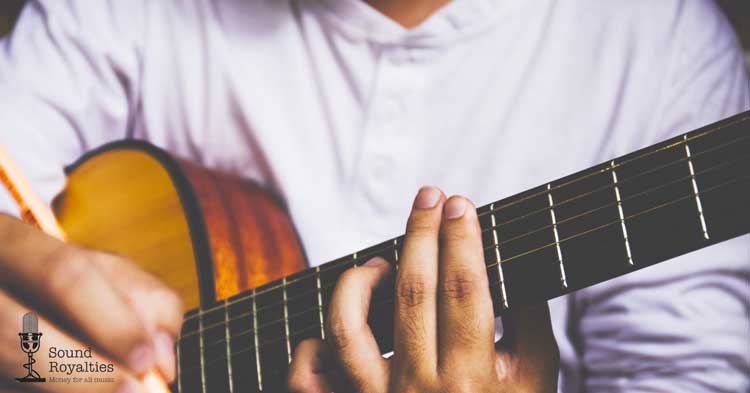
Many of today’s top songs sample music from some of the most profound records of past generations. Sampling another artist’s work isn’t a new practice, but it has become a hot topic as of late. That is why as a music creative, protecting one’s music is vital. It may seem like a daunting task, especially for a new artist who’s approaching the industry on their own, or one whose management oversees all their business affairs, but it should not be overlooked.
We strongly encourage creatives to know the ins and outs of securing their work, music copyright laws, how to copyright your music, and music license agreements. Luckily, we know a thing or two about the subjects at hand and we’re happy to break down the simple steps that should be taken to secure an artist’s music.
If you recall Julie Andrews joyfully basking in blissful open fields in The Sound of Music, then you certainly know the showtune, ‘My Favorite Things’. This classic piece is a staple in movie soundtrack history. Today, it has the attention of a generation who may have never even see the movie. Why? Because pop-sensation Ariana Grande, has a number one hit titled ‘7 Rings’ on her new album ‘Thank U, Next’, that is heavily influenced by ‘My Favorite Things’. Though ‘7 Rings’ is the by-product of 10 songwriters, 90% of the songwriting royalties from the song are going to the estates of Rodgers and Hammerstein, the original composers of, ‘My Favorite Things’. That means Grande’s royalty checks for this song are significantly impacted.
Similarly, Grande also samples the groundbreaking boyband *NSYNC in ‘Break Up with Your Girlfriend, I’m Bored’, putting her own spin on lyrics from one of the band’s hit tracks, ‘It Makes Me Ill’.
Grande isn’t the only star who has amassed success with smash hits that carry musical elements from other songs. Ed Sheeran’s new single featuring Justin Bieber, ‘I Don’t Care’, is bearing backlash from fans of British pop singer Cheryl. The singer’s supporters have taken to social media to express their disappointment after suggesting that Sheeran and Bieber’s song emulates Cheryl’s coincidentally titled, ‘I Don’t Care’.
Shifting to electronic dance music, DJ Marshmello is currently amid a lawsuit because of his 4x platinum record, ‘Happier’. The copyright infringement lawsuit states that the song models a remix of OneRepublic’s song ‘I Lived’, developed by another EDM producer known as Arty.
There are dozens of arguments a music creative could present when defending their work, but finding oneself in a music copyright infringement lawsuit should preemptively be avoided. How does a creative cover their tracks (literally)? Read on to understand the basic steps singers, songwriters, producers, and composers should take to protect their music.
Basic Steps to Copyright a Song, Lyrics or Both
- Record the song digitally and/or write the lyrics and melody.
- The creative should send the work to their Publisher and Performing Rights Organization (PRO). PROs ensure that singers, songwriters, and producers are collecting all of their music royalties from various royalty streams. For information on how music producers make money, head to our post to learn more about this process.
- The creative should ask their Publisher to submit the work to the US Copyright office. If the Publisher will not, the following action can be taken by the creative:
- Complete the copyright registration form online at www.copyright.gov and pay the registration fee. This step can be done by mail but the average processing time is 7 months versus the average 4 months that the online process takes.
- Submit the work digitally (if eligible) or by mail.
- Once the work is processed, the Publisher or creative will be notified whether it was approved or not.
The art of music is truly inspiring, so we understand how and why various artists are driven to recycle samples of music throughout the years. But it’s important that songwriters secure their songs, so that they can receive royalty payments for their work being reproduced in someone else’s tracks.
Are you collecting all of the earnings from your music? Call us today to connect with one of our Royalty Specialists. Don’t leave money on the table. We cover everything from finding unclaimed royalties to offering royalty advances for upcoming creative projects.
This article is intended for informative and illustrative purposes only. Sound Royalties, LLC strongly recommends that you consult an attorney with experience in intellectual property before publishing any musical work.
About Sound Royalties
Founded by CEO Alex Heiche, Sound Royalties, LLC is a privately-owned specialty finance firm that helps music industry professionals fund personal and professional projects without ever taking ownership of their copyrights, even in default, and also allowing for pass-through income. The company’s core business is offering royalty advances of anywhere from $5,000 to $10 million. It does this by advancing artist, producer and songwriter royalties paid through music labels, distributors, publishers and PROs such as BMI, ASCAP, SESAC, SoundExchange and many more. To date, Sound Royalties, LLC has worked with a wide range of leading music industry professionals, including GRAMMY Award winners, platinum recording artists and notable music industry executives in every genre.

